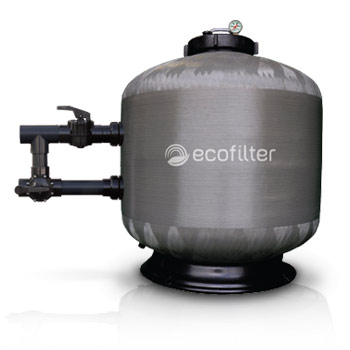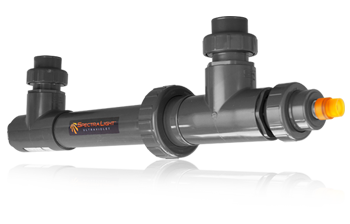Shopping Cart
All orders qualify for risk-free 30 day trial & complimentary US shipping!
-- No items so far --
Total:
0
Support
Need help? Our Pool Experts are here to help.
All orders qualify for risk-free 30 day trial & complimentary US shipping!
-- No items so far --
Total:
0
Need help? Our Pool Experts are here to help.
The three types of pool filters are cartridge filters, diatomaceous earth (D.E.) filters, and sand filters. Learn which is best for your pool and why.
Sand filters use a bed of silica sand to trap particles as low as 5 microns. Sand filters were once the most popular style of filter, but as we moved toward an environmentally conscious society, pool owners began to choose other filters. Sand filters require backwashing. This process involves forcing water through the filter to clean it, using up to 200-300 gallons per cleaning. This backwash usually ends up in the sewer system or worse, on the ground.

Diatomaceous earth, or DE filter equipment, force water through a fine powder made from the fossilized remains of sea animals. Particles in the pool water adhere to the DE until the filter is backwashed. DE filters are the most effective type of pool filter, removing particles as small as 2 microns in diameter. However, DE filters are the most expensive type of filter and they also require backwashing, which can waste between 200 and 300 gallons per cleaning cycle. DE filter equipment is generally chosen for applications where water quality is critical, such as commercial pools.
The most popular choice for residential pool equipment is the cartridge filter. They’re also the easiest to maintain. The cartridge filter works like the air filter in your house or car. The material is pleated polyester that traps dirt and debris as the water passes through. The cartridge’s dirt trapping ability improves, as the cartridge gets dirtier. A cartridge filter that’s been in use for a few weeks can trap particles as low as 5 microns. And cartridge filters are easy to clean. Simply remove the filter and hose it off, a process that uses little water. Some cartridge filters are designed with a high dirt holding capacity and require cleaning once every 6 months. Cartridge filters are usually at the top of every pool equipment list.
There are a number of alternatives for swimming pool sanitation. Compare UV to chlorine, ozone, ionization and other technologies here.
